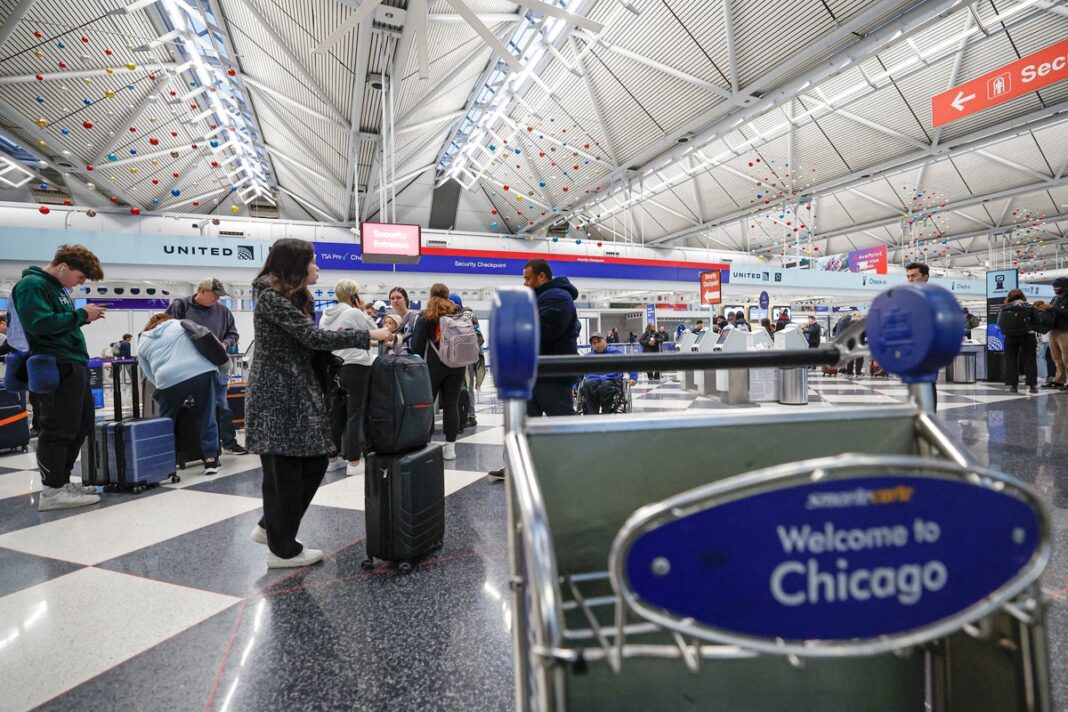The Impact of the Government Shutdown on Air Travel: A Closer Look
As the government shutdown stretches into its second week, major airports across the United States are grappling with significant flight delays due to staffing shortages. This situation isn’t just a minor inconvenience; it is emblematic of larger political and operational struggles impacting air travel nationwide.
The Source of Delays
With Congress failing to pass a funding bill, essential federal employees, including air traffic controllers, are operating under duress. During this shutdown, while air traffic controllers are classified as essential workers and must continue their duties, the funding lapse has led to critical staffing shortages. This has forced the Federal Aviation Administration (FAA) to slow down traffic at numerous airports, raising safety concerns.
For example, Nashville International Airport reported average delays exceeding two hours, while Chicago’s O’Hare International Airport faced ground delays averaging around 40 minutes. FlightAware, a flight tracking service, logged over 3,000 delays on a single Tuesday, highlighting the widespread disruption.
Political Blame Game
The blame for these delays has turned into a political hot potato. California Governor Gavin Newsom publicly blamed former President Trump for initiating the government shutdown, citing the absence of air traffic controllers at Hollywood Burbank Airport for extended hours and its cascading effect on air travel in Los Angeles. In a rebuttal, Transportation Secretary Sean Duffy remarked that the shutdown resulted from Democrats “not being able to get their priorities straight.”
This back-and-forth highlights the heightened political tensions as parts of the country face disruption while both parties remain divided. Democrats are pushing for reversals in budget cuts, particularly those affecting Medicaid, while Republicans are making unfounded accusations regarding healthcare for undocumented immigrants.
Controllers Under Pressure
Among the most affected professionals in this situation are air traffic controllers, who have reported an uptick in sick calls amidst increasing pressure to manage airspace without adequate staffing. Duffy confirmed this trend, indicating that controllers are juggling the high demands of their jobs with concerns over their financial stability, including how to handle mortgage payments and car loans uncertain in the face of prolonged furloughs.
The last government shutdown, lasting 35 days from late 2018 into 2019, witnessed a significant number of controllers calling in sick, leading to a wave of delays that ultimately pressured lawmakers to end the impasse.
The Furlough Quandary
While air traffic controllers and other federal workers are promised back pay once the government reopens, Secretary Duffy has highlighted the immediate financial pressures these employees face. The emotional strain of uncertainty during a government shutdown, where regular pay is disrupted, casts a shadow over the workforce dedicated to ensuring the safety and efficiency of air travel.
In a startling turn of events, Trump expressed hesitance to commit to back pay for all furloughed employees, claiming it would depend on the specific circumstances. This statement drew sharp criticism, as many assert that federal employees are entitled to their back pay as per the law.
Broader Implications for Travelers
As the ripple effects of the shutdown continue, everyday travelers face chaos at airports with extended waits and cancellations becoming the norm. These inconveniences tarnish the travel experience, which is compounded by rising tensions in the skies and the on-ground operations of airports.
From the passengers stuck in endless queues to the airlines navigating through the unpredictable landscape of government dysfunction, the effects are widespread, and the frustrations palpable. The shutdown has cast a long shadow over air travel, making clear how interconnected politics and daily life truly are in this age of uncertainty.
By drawing attention to these unfolding events, it is crucial to consider how underlying issues may continue to affect service and operations, ultimately impacting travelers and the airline industry as a whole in the near and distant future.



